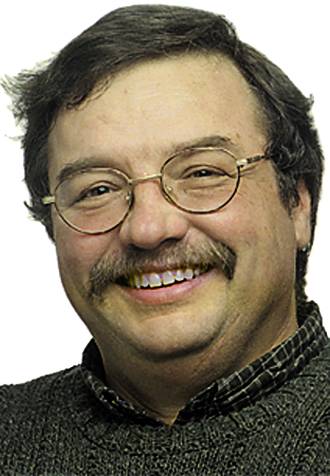
I didn’t know Jim Gordon well, but I knew him with great affection. His personality improved the weather in a room, and we shared the same room for years.
That would be the Lake Street Screening Room, where as often as five times a week the film critics of the Chicago area gather for previews of new movies. Jim was for 23 years movie critic for the Post-Tribune in Gary, Ind., and more recently for The Times of the northwest Indiana area, published in Munster.
One thing I knew about Jim was that it was a long commute for him to the Chicago Loop at rush hour. “I gotta leave in plenty of time to be here at 10,” he was telling us the other day, “so half of the time I’m way early and the rest of the time I’m afraid I’ll be late.”
I knew about his commute, his grandchildren, how he grew up in Gary, his politics, and his heart problems. The last time we talked, he told me about an approaching heart valve operation. On Friday, preparing for a garage sale at his home in Chesterton, Ind., he died of heart arrest. “It wasn't a heart attack,” his daughter Rachel Tednes of Hoffman Estates told The Times. “His heart just stopped.” Jim was 60.
In the little community of the screening room, we all have our territories. Peter Sobczynski of WKQX is invariably onstage near the front row, riffing from his vast store of arcane and obscure pop culture knowledge. My wife Chaz, on my right, is often chatting with Dann Gire of The Daily Herald, who sits across the telephone table from her. I sit on the aisle in the back row, and Jim Gordon would more often than not be leaning against the wall next to me, talking about everything in general and nothing in particular, with such a sunny wonder that I usually found myself smiling.
He was a big guy with a moustache. Quietly sure of himself. Nothing to prove. How many people have you met who worked the steel mills in Gary, drove a cab, and had a Ph.D in film from Northwestern?
He knew all about the movies, but wore his knowledge lightly; when he hosted old movies on an Indiana TV station he’d have a bowl of popcorn in his lap, and just talk with the audience, no lecturing.
All this seems sort of vague to base an obituary on, but sometimes people will do something to give us a glimpse of what they’re made of. Here’s what I noticed Jim doing. We had been talking before the screenings for years, when I was absent from the screening room for 11 months with illness. When I came back, I had a trach tube and I couldn’t talk. I had to write notes. That didn’t seem to bother Jim.
A lot of people, they notice the trach tube, they ask you how you’re doing, you nod, they translate “fine,” and then they move along. You can’t blame them. Maybe they’re a little uncertain about how to handle the situation. Jim was never uncertain. He picked up our conversation where we left off. He did the talking for both of us. He was exactly the same. His topic was the wonder and variety of everyday life. My trach tube didn’t make him self-conscious, and he didn’t draw back. He knew who he was, and he made it seem like the most natural thing in the world that I couldn’t talk.
I don’t believe he ever guessed how much his attitude meant to me, because his empathy came naturally. I doubt there was any conscious decision involved; he simply responded to the situation with instinctive tact.
I can’t remember a time over the years when Jim seemed angry, or short-tempered, or unkind. There was always a little sunshine coming from his corner. It wasn’t what he talked about, it was how he did it. Not long ago he was describing how he took family members along on a hunt for Big Foot in the wilds of Wisconsin. “They blindfolded us when we got close, so we couldn’t reveal Big Foot’s lair,” he said. “Apparently they have Big Foot trained to come when they whistle. Or maybe it’s a guy in a Big Foot suit.”
Did he believe there was a Big Foot?
“They say there are 70 in North America,” he said, poker-faced. “I don’t know if there are any in Wisconsin. But the trip was fun whether or not.”
In his last column for The Times, published a week ago, he wrote about that Boy Scout troop that was briefly lost. These days, he said, lost means being out of cell phone contact. He said Scouting gave him his happiest moments from the time he took the Scout Pledge until he went off to college.
“And I suspect there are a lot of men my age,” he wrote, “who grew up in the shadows of the mills and the refineries, that remember Camp Sauk Trail as an island of wilderness in a sea of steel. Our mountain retreat was a patch of woods and hills in Burns Harbor, but it was enough.”
He should have had a merit badge for helping me across the street of my life.
Roger Ebert was the film critic of the Chicago Sun-Times from 1967 until his death in 2013. In 1975, he won the Pulitzer Prize for distinguished criticism.





